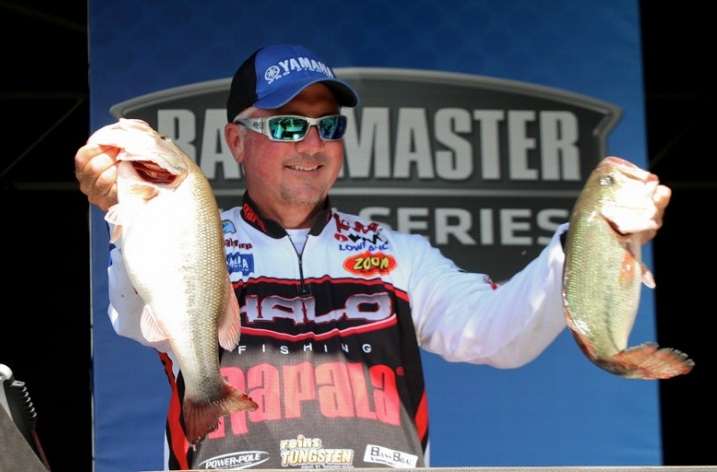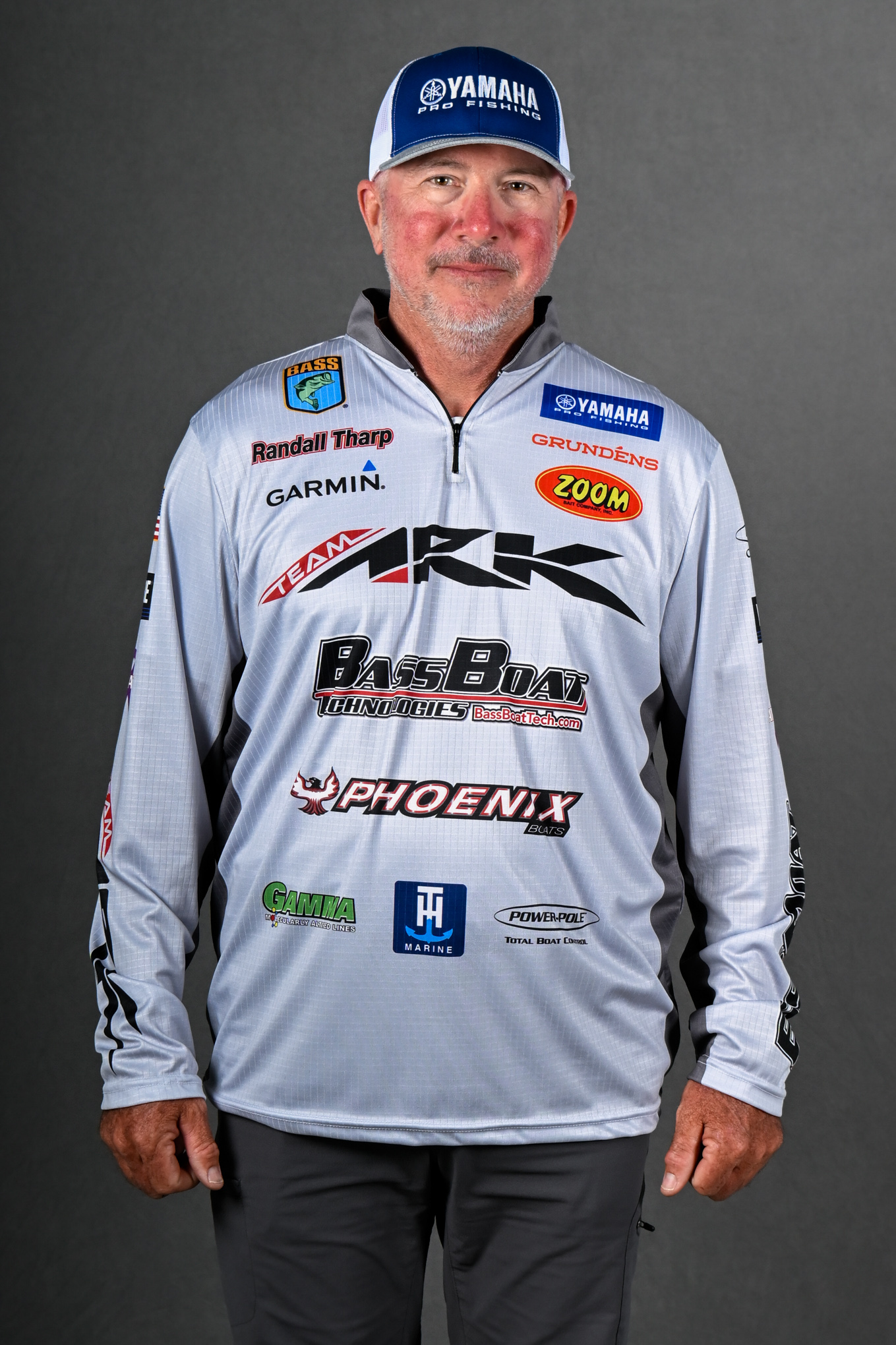
I am home for the first time since February. I haven’t found any other place that can clear my head and put everything back into perspective for me like my home in Florida. The waves hitting the sand and salt in the air is something I have been longing for for quite some time. The fishing here is amazing all year long and quite frankly, I just can’t get enough of it. The best part of it to me is that it’s relatively untapped. It doesn’t matter if I go fishing inshore, offshore or up a river to catch a few bass, it is never crowded. If I see more than a few boats in a given day that is a surprise which means that it’s just about 180 degrees from the BASSfest tournament we fished at Kentucky Lake.
I have recently enjoyed well-written articles by Brent Ehrler and Greg Hackney about some things that happened at BASSfest. Pete Robbins also had a good one that even went so far as to suggest that we avoid “ledge” tournaments on the Tennessee River. I have tried to distance myself from what goes on at these derbies, but I have learned that the confrontations are really inevitable.
This year’s BASSfest was my fourth trip to Kentucky Lake. I have done well on other Tennessee River lakes in June, but Kentucky Lake has proven to be a thorn in my side. I have had two terrible finishes there, including a zero the first tournament day I ever competed there. I’ve also earned two decent finishes in the twenties, including this year’s 27th place finish.
My bad finishes on Kentucky Lake were a direct result of refusing to fish around other boats. I went to the bank, which is basically deserted in June, and had a blast catching the unpressured fish that live up there. Unfortunately for me, the fish I can catch consistently up shallow don’t weigh enough to pay any bills and will never give me a chance to win. My better finishes have come fishing around other boats on what are probably some of the biggest community holes on the lake.
I believe that one of the things that make this sport unique is the fact that we compete on public waters. As long as you have a fishing license we all have an equal right to be on the lake. I mean, I can’t go play Augusta National next week to see how I stack up against Jordan Spieth or step up to the plate at a Major League baseball game, but you can be on the lake when the Elites come to town whether you are a spectator, fishing another derby or just out to catch something. That is part of the game for us and we all should understand that. The unfortunate part of this reality is that outside influences do impact the outcome of our events in various ways.
One of the reasons I choose to compete on the Elite Series over the FLW Tour is the absence of co-anglers. I got along with almost all of my co anglers just like I get along with most of the people I meet on the lake, but the fact is that their presence changes the outcome of each and every event, for better or for worse. I don’t want to wade too far into the co-angler debate, but the point that I’m trying to make is that outside influences play a role in every tournament. During these “offshore” tournaments, however, the outside influences seem to be much more varied and difficult to avoid than at other times of the year on other lakes.
These offshore tournaments also lend themselves to the waypoint sharing and information game that I hate. My frustration is that I work for the entire practice period to find five spots and another angler arrives with 25 spots better than any of mine before he puts the boat in the water. Those 25 spots were probably Kevin VanDam’s holes the last time he won there. Where does it end?
After reading Ehrler’s column, I have given the information game a lot of thought, and I am starting to feel like those of us who operate this way are the minority. I am not putting anyone down for the way he chooses to do his job, but I don’t see what satisfaction you could possibly get by doing this. The Elite Series rules are very clear and as long as you get this information before the lake goes off limits there are no rules being broken. I have some friends who get a lot of “help” and sometimes it works and sometimes it doesn’t. I just choose to do it my way and at these offshore events I occasionally pay the price for wanting do things my way.
The confrontations between professional anglers is probably the biggest problem I see with these offshore events. I hate what continues to happen year after year, and I do feel that on the whole it is getting progressively worse. The stories you have heard or seen on TV are pretty minor compared to some of the things you didn’t hear about.
In past columns you’ve heard me talk about the “win at any cost attitude” and the need for “respect,” and I apologize if it is starting to sound like a broken record. I have a great deal of respect for the vast majority of the anglers who I compete against on the Bassmaster Elite Series. On the other hand, it is unfortunate but obvious that the word “respect” is meaningless to a few guys who compete at the top level. All of this takes away from what this is really supposed to be about. It’s about the competition and as a competitor all I want is a fair and level playing field. I hope that the best fisherman on the water is the one holding the big check and the blue trophy at the end of the week.
Despite all of the negatives that surface in an offshore event, it might surprise you that I feel that they are far outweighed by the positives. I did not see it in the beginning but there is truly an art to this offshore game and I am really starting to enjoy it. It would not be fair to Edwin Evers, Kevin VanDam, Brett Hite, and some of the other top finishers, if we just quit visiting the Tennessee River in the summer. They have figured out how to take what I have always viewed as negative things and turned them around, using them to their advantage.
The anglers who come out on top are the ones who seem to anticipate the moves and actions of the other Elite anglers, local pressure and the changing conditions over the four days. They anticipate those factors before they even happen. It is no different from what I do at Okeechobee. I just do it in 2 feet of water instead of 20. The best at this game also seem to be able to pull up on a place that is pounded from daylight until dark, make a cast and catch the biggest fish in the school. They are also able to find that subtle, overlooked place that everyone else rode right by. Additionally, they somehow manage to use it every day without some poacher finding out about it. The few that have figured out how to manage all of this chaos should be rewarded for their efforts. My hat’s off to each of them who have proven to truly be the “Elite” when it comes to the specific challenges of the offshore game.
That is why I am looking forward to a return to Kentucky Lake. After four tournaments there I feel I am getting closer to understanding the whole puzzle. I may never love it like I love the waters around my home, but I do appreciate it for what it is. It is an awesome playing field with a bunch of other factors thrown in to make it even more challenging.
Isn’t that the reason we all fish anyway?
I know that’s what keeps me coming back – the challenge and love of the competition!

